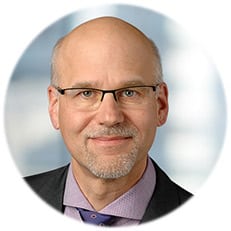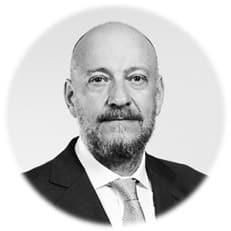An article from Finews.ch to discover here:
or read below (English translation):
“Investment jargon does not trigger emotion”
05 July 2018 – by Samuel Gerber
Jean-François Hirschel led the marketing for a Swiss fund manager for many years. Now he has set-up his own consultancy and explains to finews.ch why the industry does not communicate successfully with its clients.
I just received a document from a Swiss wealth manager which discusses the “long-term outlook for the investment business”. Is it out of place if I yawn?
Definitely not. In Europe only, there are 4000 investment managers and 54000 funds. Clients have the agony of choice and are generally overwhelmed by a flood of information. So, one way in which wealth managers can stand out of the crowd is to use vocabulary which clients can immediately understand.
That is the requirement for an emotional bound, without which, ultimately, there will be no buying decision taken.
All marketing experts must say that.
This is not simply just marketing waffle. This is about neurobiology. Modern scientists can demonstrate that, in the human brain, buying decisions are triggered by emotion. You don’t create emotions with investment jargon.
But, wealth management is dry matter. How is it possible to stir up feelings for this?
Therein lies the challenge for this industry. Ultimately, clients use hard data with which to evaluate performance: just numbers. So, the natural temptation is to communicate on numbers and process.
This ignores the fact that opinions also form part of investing. History and values are what make an investment firm unique. These aspects need to be expressed.
Private banks like the Geneva-based Lombard Odier have recently compared themselves with the luxury good industry. Is this strategy catching on?
In terms of brand, the financial sector can learn a lot from the luxury goods manufacturers.
“Trust helps keep clients when times are not as good as they usually are”
Probably the most relevant lesson for the finance sector is that brands create trust. Luxury watch buyers trust that their watch will give them accurate time to the second for many years. However, there is a difference between precision watch movements and investments.
What would that be?
Even the best fund manager will at some point experience a moment of lacklustre performance. And this is why trust is so important in this industry: trust helps keep clients when times are not as good as they usually are.
Again, with insight into the luxury goods industry: does a strong brand guarantee strong margins?
Yes, among many other things. A strong brand gives you a position in the market, helps the clients with their purchasing decision and gives you pricing power. This is true in many different industries. Think about Apple, Nespresso or Porsche. It is something the financial industry is getting more sensitive to.
There are a few examples of asset managers like M&G running major advertising campaigns in Switzerland and seeking to build their retail client base. Will we see more of this in the future?
Yes. The State is disengaging itself from solving retirement issues. In doing so, it’s slowly pushing the responsibility for long-term saving and investment decision-making towards individual citizens. Accordingly, asset managers need to open communication channels through to individual consumers
“It’s all too easy for foreign asset managers to lose their way in Switzerland”
Not least, it helps the intermediary sales of a bank, when the end-consumer has already heard of an asset manager’s brand.
You advise similar foreign asset managers which want to gain a foothold in Switzerland. What are the most common beginner’s mistakes?
A lot of foreign asset managers are tempted to gain foothold in Switzerland. And why not. It’s the third largest pension fund market in Europe, the largest market for rich private clients and family offices. It’s viewed as an Eldorado and, even better, as a highly stable one.
But?
The issue is that it’s also a very fragmented market. There are more than 2000 pension funds for example. Furthermore, the size of investors and their sophistication can be significantly different. So it’s all too easy for foreign asset managers to lose their way in Switzerland. Naturally, that’s extremely frustrating. Also I would warn against pure “product pushing” and “me too” products. Both are poised for failure in the Swiss market.
Jean-François Hirschel is the founder in Geneva of a finance marketing consultancy, H-Ideas. He studied computer science at the École Polytechnique Fédérale de Lausanne (EPFL) and subsequently joined the finance sector. After roles in the major French banks, BNP Paribas and Société Générale, he joined the Swiss asset manager, Unigestion, in Geneva in 2007. He went on to become Unigestion’s Head of Marketing and a member of its Executive Committee until he left in 2017 to set-up H-Ideas.
© 2018 finews.ch – The Meeting Place of the Finance World






